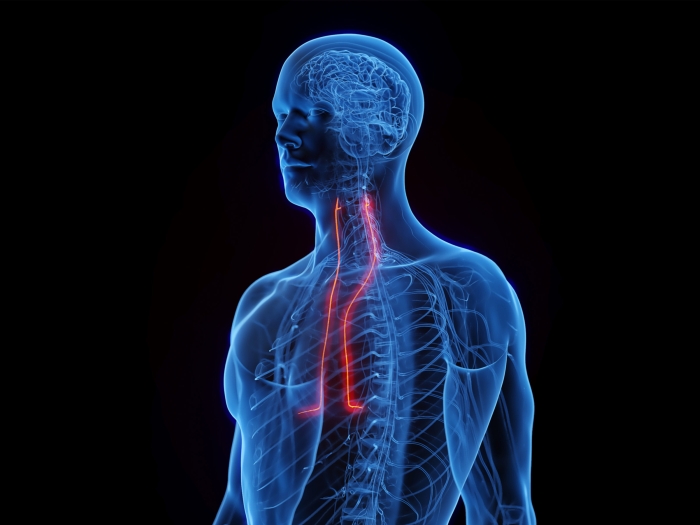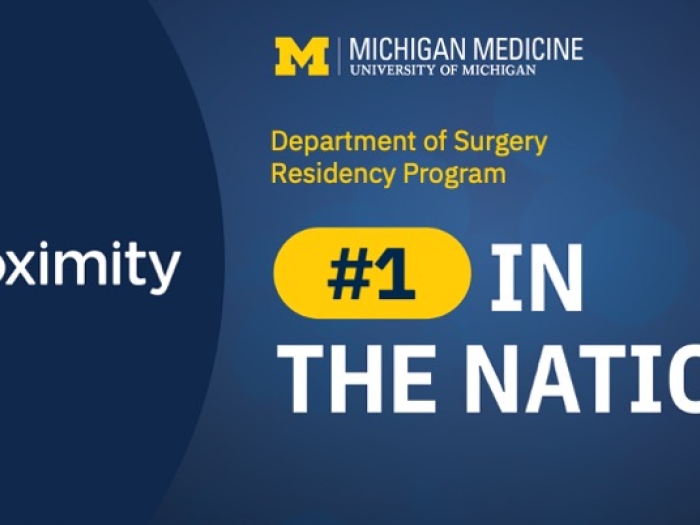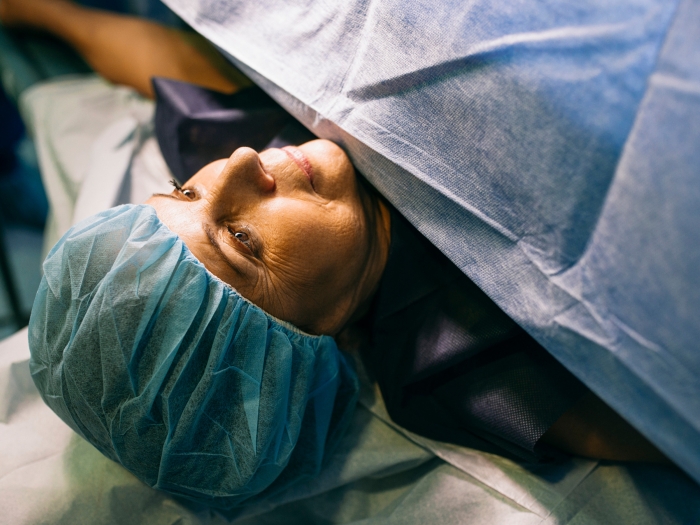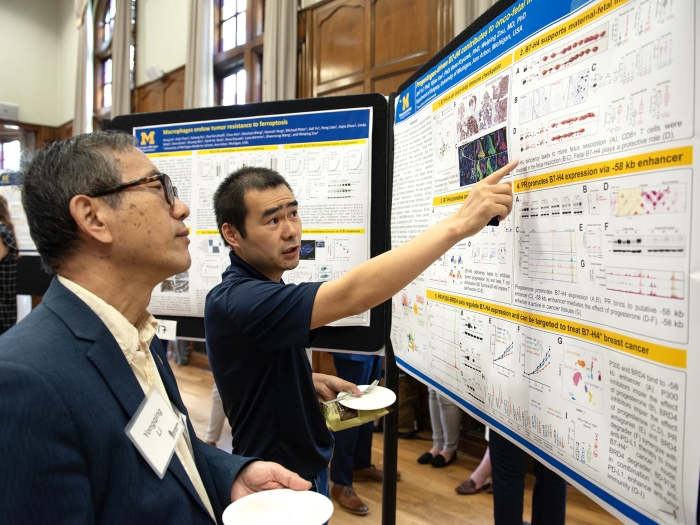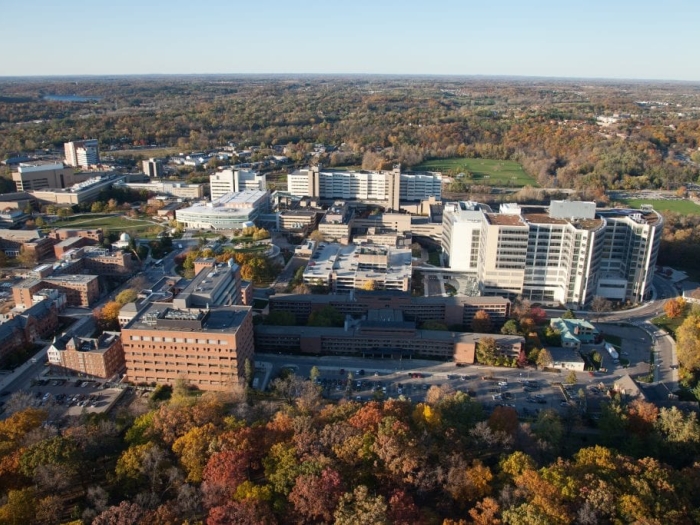
At the U-M Medical School Section of Thoracic Surgery, we’re proud of our rich history as we continue to lead the way for the future of our specialty.
Our goal is to be a worldwide leader in thoracic clinical care, to train the next generation of surgeons and surgical scientists, and to perform advanced basic science and translational research to improve the lives of our patients.
We provide comprehensive diagnostic and therapeutic services for patients with surgical diseases of the chest, including malignant and benign tumors of the lung, esophagus and ribs, gastroesophageal reflux and its complications, and neuromotor esophageal abnormalities. We are leaders in esophageal and complex lung cancer surgery, with a focus on minimal access surgery, including using the da Vinci platform, a surgical technique that can shorten patient recovery time and reduce pain. We have one of the most robust thoracic robotic surgery programs in the country.
Graduates of our training programs go on to take leadership roles in the field, finding success in both private practice and academic medicine. We offer two residency programs — a 2-year fellowship program and an integrated 6-year thoracic residency with our partners in the Department of Cardiac Surgery. Trainees develop expertise in surgical care of adult cardiac, general thoracic and congenital cardiac diseases.
From early detection and personalized therapies for lung and esophageal cancer to the novel use of imaging technologies to assess surgical patients’ preoperative health, Michigan thoracic surgeons connect biomedical breakthroughs to practical applications to improve lives. Our research efforts include lung reconditioning using ex-vivo lung perfusion prior to transplantation; RNA sequencing to provide early cancer diagnosis; and development of an artificial lung that could serve as an alternative to extracorporeal membrane oxygenation.
Stay connected to the community of Michigan thoracic surgeons as you mature your career and share your knowledge with others.
We welcome alumni engagement, and invite you to join us for a tour, a special event, or a social hour at an upcoming conference. As one of the oldest thoracic surgery training programs in the country, we’re proud of the excellence of our alumni as they influence the direction of the specialty across the country. Keeping in touch also means you benefit from mentorship and networking opportunities, and staying on top of the latest advances and technologies in surgical care for thoracic diseases.
The Michigan Promise aims to empower faculty members and residents in the Department of Surgery to achieve professional success. We support initiatives connected to environment, recruitment, leadership, achievement, innovation and outreach.
Your contribution helps us research medical breakthroughs, make medicine more inclusive and train the next generation of surgical leaders.
- For our clinic information, specialty clinics, procedure information and more, please visit the Thoracic Surgery section on UofMHealth.org.
- Michigan Medicine Patient and Visitor Guide
